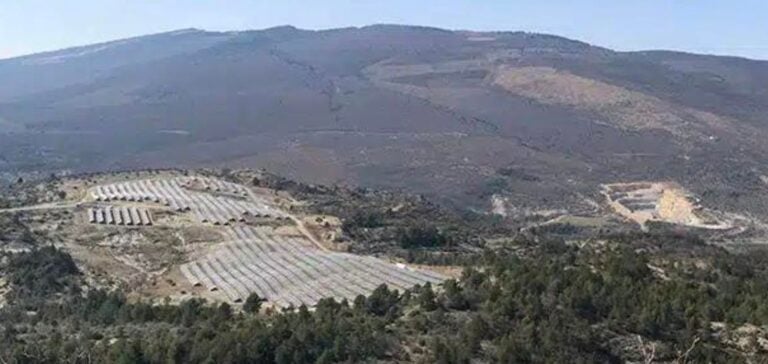The Marseille Administrative Court of Appeal recently condemned the French state and the Canadian company Boralex, responsible for operating a photovoltaic power plant on the Lure mountain in the Alpes-de-Haute-Provence region. This decision comes after several environmental associations, initially rejected by the court of first instance, appealed against the 2020 prefectoral decree. This order granted Boralex an exemption for the destruction and intentional disturbance of specimens and habitats of protected species. The judges found that “no alternative solution for siting the project beyond the municipal territory had been sought”, despite the fact that the area identified by the municipality had not been artificially developed. They also pointed out that the existence of several photovoltaic park projects in the immediate vicinity suggested that alternatives existed.
Environmental impact and project progress
The construction site for the photovoltaic power plant, almost complete and already impacted by environmental activists, covers an area of 17 hectares near Cruis, at the gateway to the Luberon Regional Nature Park. The plant, equipped with 20,000 solar panels, is designed to produce 26 GWh of green energy per year, equivalent to the annual electricity consumption of around 12,000 inhabitants. However, the project required the felling of hundreds of trees in a protected area, classified as a biosphere reserve by UNESCO in 2010. The cancellation of the derogation by the administrative court does not, however, call into question Boralex’s right to operate the power station or the finishing work in progress. In response, Boralex stated that “the cancellation of the protected species exemption does not call into question our presence on the site or the finishing work on the power plant”. However, Boralex’s lawyer, Antoine Guiheux, has indicated that the company, which is also active in the wind power sector in France, is considering appealing to the French Supreme Court.
Futurist Reactions and Perspectives
For environmental associations, this court ruling represents a major victory against the State and industrial interests. Pierre Lavoie, a member of Amilure’s board of directors, declared that alternatives were possible on already degraded land, thus avoiding sacrificing remarkable biodiversity. For his part, Pierrot Pantel, an environmental engineer and coordinator of environmental struggles, asserted that the ruling is suspensive, preventing Boralex from continuing to operate the plant for the time being. Looking ahead to a possible favorable decision by the Conseil d’Etat, Pierrot Pantel suggested that the associations could ask for the site to be restored, although this process could take some time.
This case highlights the growing importance of environmental considerations in the planning of energy projects. Industry professionals need to take these concerns on board to avoid similar conflicts and promote a sustainable energy transition that respects biodiversity.






















